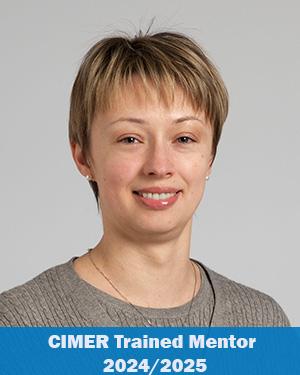Research News
08/10/2023
Water channel Aquaporin 4 in immune cells may impact human organ transplant success
New study demonstrates water channel AQP4 is required for immune cell activation, which may provide a novel target for controlling transplant rejection.

A team of Cleveland Clinic researchers studying transplantation immunotherapy has developed a new approach to disrupting unwanted immune responses after organ transplantation by inhibiting water channel Aquaporin 4 (AQP4).
AQP4 is part of the aquaporin family of water channels that regulates kidney function and the blood brain barrier. Until recently, researchers didn’t understand the molecule’s role in the immune response.
The team led by Anna Valujskikh, PhD, was the first to demonstrate AQP4’s ability to regulate activation of pathogenic T cells. The findings have recently been published in the Journal of Leukocyte Biology.
“From a patient care standpoint, one of the most pervasive challenges in human transplantation is controlling unwanted immune responses that lead to rejection episodes,” says Michael Nicosia, PhD, first author and a member of Dr. Valujskikh’s lab. “Following transplantation, recipient T cells, normally essential for host protection against infections and tumors, turn against donor organs and ultimately leading to rejection.”
After studying current therapies used to regulate immune responses in organ transplantation, the Valujskikh lab began looking at the water channels in recipient immune cells. They found that AQP4 supports the immune response through T lymphocyte activation, enabling cell membrane movement necessary for the assembly of cell signaling molecules.
“This provided a completely novel approach to controlling the immune response. T lymphocytes treated with AQP4 inhibitor have a reduced capacity of initiating donor graft tissue injury,” says Dr. Nicosia.
Identifying AQP4 as an important therapeutic target to control undesired immune responses, including those in transplant patients and patients with autoimmune disease, holds the potential for guiding future organ rejection therapies.
This research is the latest and third study from the Valujskikh lab exploring the role of AQP4 in controlling immune responses at the most acute phases of transplantation. The team has previously published on the topic in the American Journal of Transplantation and in Scientific Reports.
Each year in the United States, 25,000 patients receive a life-saving or life-enhancing organ transplant. Side effects of current immunosuppression is a leading cause for mortality in transplant recipients, making the search for novel immunomodulatory reagents extremely important. The combined findings uncovered AQP4 novel functions in immune cells and identified this molecule as a potential therapeutic target in transplantation, with the objectives of improving viability of donor graft cells, diminishing anti-donor T cell responses and extending allograft survival.
Featured Experts
News Category
Related News
Research areas
Want To Support Ground-Breaking Research at Cleveland Clinic?
Discover how you can help Cleveland Clinic save lives and continue to lead the transformation of healthcare.
Give to Cleveland Clinic